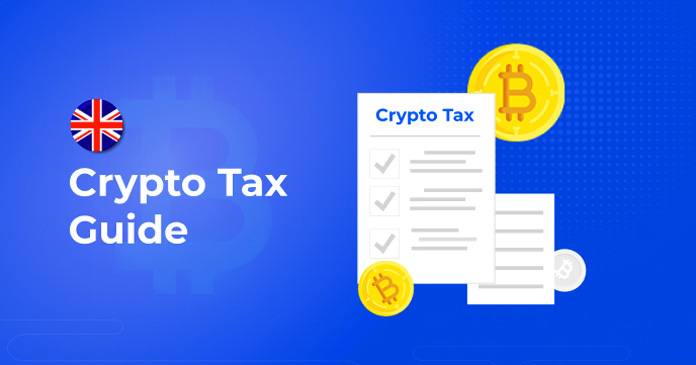Navigating cryptocurrency investments can be exciting—and confusing, especially when it comes to taxes. If you’re a UK crypto investor, understanding your tax obligations is essential. HMRC considers cryptocurrencies as assets, not currency, so their treatment follows specific rules.
This blog will break down everything you need to know about crypto tax in the UK, answering crucial questions in simple terms. Whether you’re trading Bitcoin, receiving crypto payments, staking on a DeFi protocol, or using a tax tool like Koinly—we’ve got you covered.
Do I Have to Pay Tax on Crypto in the UK?
Yes, most UK cryptocurrency investors will need to pay taxes. HMRC views cryptocurrencies as assets, and any profit you make from them is subject to Capital Gains Tax or Income Tax, depending on your activities.
When Does Capital Gains Tax Apply?
Capital Gains Tax applies when you dispose of cryptocurrencies. This includes:
- Selling your crypto for GBP (£) or any other fiat currency
- Swapping one cryptocurrency for another (e.g., Bitcoin to Ethereum)
- Using crypto to purchase goods or services
- Giving crypto as a gift (unless gifting to your spouse or civil partner)
The tax is calculated on your profit, not your total proceeds. For instance, if you bought 1 Bitcoin for £15,000 and later sold it for £21,000, you would owe tax on the £6,000 profit.
HMRC allows a Capital Gains Tax allowance (currently £6,000 for the 2023/24 tax year). If your total gains are below this threshold, you don’t owe any tax. Learn more about calculating Capital Gains Tax on our dedicated blog.
When Does Income Tax Apply?
If you earn or are rewarded in cryptocurrency, it’s likely subject to Income Tax. This includes scenarios like:
- Getting paid for services in crypto
- Receiving staking or yield farming rewards (like from DeFi platforms)
- Airdrops received in exchange for work or services
The value of the crypto is based on the market price on the day you received it. Your total earnings are added to your regular income and taxed according to your tax bracket. For further clarity, check our post on Income Tax.
Can HMRC See My Crypto?
Yes, HMRC can track your cryptocurrency transactions. With the rise of digital assets, HMRC has increased its efforts to monitor crypto activity through various methods, including:
- Collaborating with exchanges like Coinbase or Binance to access user data
- Requiring you to report gains or earnings in crypto when filing a Self-Assessment tax return
Failing to report your crypto activity can result in penalties or investigations. Transparency is key here—be proactive about reporting your gains to avoid unnecessary trouble.
Do I Have to Pay Taxes if I Receive Crypto?
Yes, if you receive cryptocurrency as a payment or reward, it’s considered taxable income. Here’s how it works:
- The crypto’s value in GBP on the day you receive it is added to your income.
- Any future gains made when you sell or trade that crypto will be subject to Capital Gains Tax.
For example, if you received 1 Ethereum as payment worth £1,500, and later sold it for £2,000, the £500 increase would be taxed under Capital Gains Tax, while the initial £1,500 would count toward Income Tax.
What is the 30-Day Rule in Crypto?
The 30-day rule is used by HMRC to prevent individuals from exploiting tax loopholes by selling and repurchasing investments within a short period to realise a tax-free gain.
For example, if you sell 2 Ethereum to realize a loss and then buy back 2 Ethereum within 30 days, HMRC will match the sale with the repurchase, rather than allowing you to offset that loss. The purpose is to ensure gains and losses are calculated fairly.
This rule applies to crypto transactions too, so be mindful when selling and rebuying assets within this timeframe. More details about this rule can be found in our comprehensive Capital Gains blog.
When Do I Pay Tax on Crypto in the UK?
Taxes related to cryptocurrency must be declared in the same way as other taxable gains or income:
- Self-Assessment Deadline: January 31 every year for the previous tax year (e.g., January 31, 2024, for the 2022/2023 tax year).
- You’ll need to report any profits from selling, trading, or otherwise disposing of crypto on your Self-Assessment tax return.
Using platforms like Koinly, another popular crypto tax software, can simplify your reporting by automatically calculating gains and losses based on your exchange activity.
Understanding DeFi and Tax Implications
DeFi (Decentralized Finance) transactions such as staking and liquidity pooling can attract either Capital Gains Tax or Income Tax depending on their nature. For example:
- Capital Gains Tax applies when you dispose of the asset (like entering or exiting a liquidity pool).
- Income Tax applies to rewards earned from staking or yield farming based on their fair market value.
HMRC's guidance around DeFi is still evolving, so staying up-to-date is essential if you participate in these activities.
Key Takeaways for UK Crypto Investors
Crypto tax in the UK can seem complicated, but understanding the basics can save you time, money, and stress. Here’s what you need to do:
- Keep Records: Maintain detailed records of all your transactions, including dates, amounts, and market values.
- Track Your Gains: Use tools like Koinly to calculate your tax obligations.
- Stay Educated: Keep up with HMRC guidelines, especially as crypto regulations evolve.
Need expert help? At Debitam, we simplify accounting and tax compliance so you can focus on what matters. For more insights into UK tax compliance, check out our detailed blogs here













